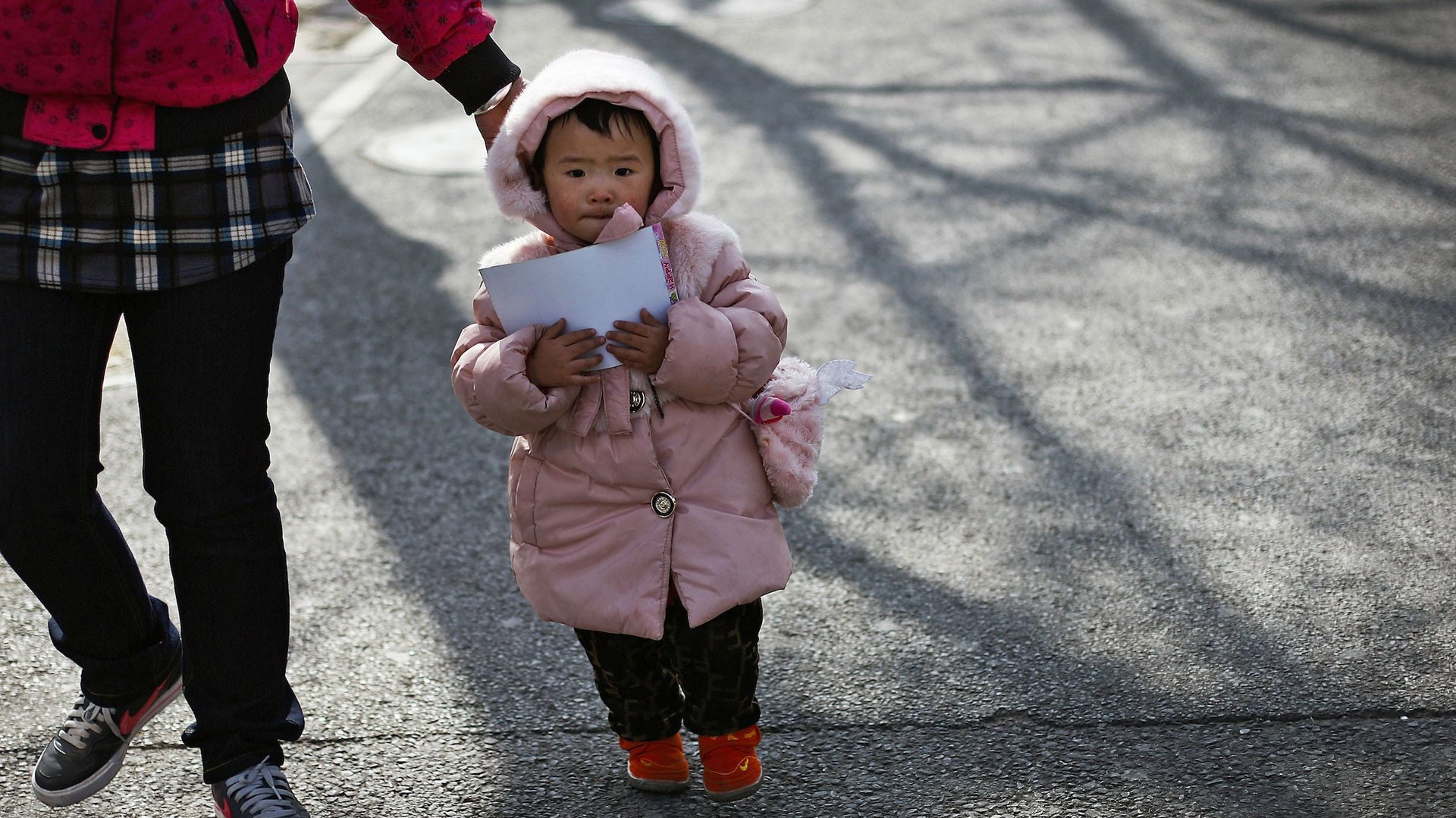China’s “little emperors” aren’t as spoilt and selfish as they seem
The children born under China’s one-child policy have it rough. In job ads and recruitment fairs, employers have discouraged children without siblings from applying. The “little emperors” are thought of as lazy, selfish and over-indulged (the fact that China has a child obesity problem doesn’t help). And according to a new study published in the academic journal Science, these kids are less competitive, less trusting, less altruistic, more risk-averse, and more neurotic than those with siblings.


The children born under China’s one-child policy have it rough. In job ads and recruitment fairs, employers have discouraged children without siblings from applying. The “little emperors” are thought of as lazy, selfish and over-indulged (the fact that China has a child obesity problem doesn’t help). And according to a new study published in the academic journal Science, these kids are less competitive, less trusting, less altruistic, more risk-averse, and more neurotic than those with siblings.
The one-child policy began in 1979 to curb population growth; today about 90% of all urban children, and over 60% of rural children have no siblings. The policy created a range of problems including forced abortions, a widening gender gap, and a disproportionately large aging population.
But before we declare Chinese only children themselves to be another problem, let’s consider a few things.
First, studies have shown conflicting results about the differences between “onlies” and children with siblings. Many studies in the US have found that only children don’t have worse social skills than kids with siblings and often perform better in school. Research in China has had mixed results too. In 1993, a study found that Chinese children did better academically and in personality were seen as no different from their peers with siblings. Others conclude (pdf) that Chinese children, who start school relatively young, use their schoolmates to make up for lack of playmates.
Secondly, China’s generation Y—those born in the 1980s after the one-child policy began–might be what Chinese businesses need. Highly educated, they have been the only children of increasingly wealthy families devoting more money and attention to their success. At work, they are more outspoken, more confident and less respectful of hierarchy, according to managers surveyed. Asked about role models in the same survey, several Gen-Y-ers cited Steve Jobs.
Finally, China’s so-called “me generation” has grown up in a culture that stresses and respects sibling ties. Most of their parents have siblings (addressed according to their birth rank: “oldest aunt,” “aunt no. 2” and so on). Also, Chinese onlies often grow up with cousins and close family friends as surrogate siblings. Asked in a survey ”what is really important to you,” 45% of 1980s-born Chinese answered “family.”
It’s hard not to feel bad for these lonely onlies. The government has pushed hard the idea that they should lead China’s next phase of modernization. That in turn makes their parents pressure them. At the same time, they are expected to fulfill traditional filial duties, like financially supporting their parents, caring for both sets of grandparents and helping other elder family members. As Vanessa Fong says in a 2004 study, this puts extreme pressure on the single children and their families.
While there is talk of phasing out China’s one-child policy, possibly as early as 2015, it’s likely to stay in effect for the near future. Until then, China’s little emperors have their work cut out—but also time to remake their image, as trail-blazers rather than spoilt brats.